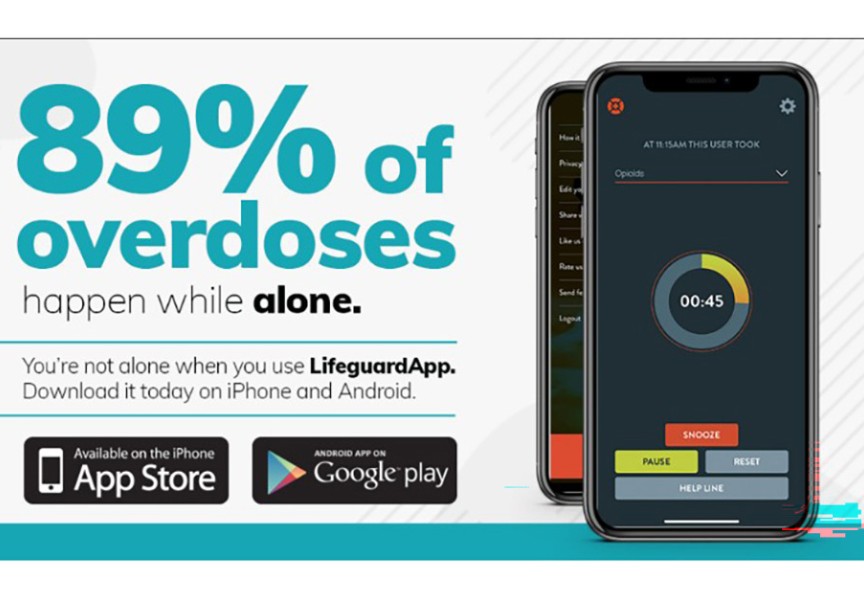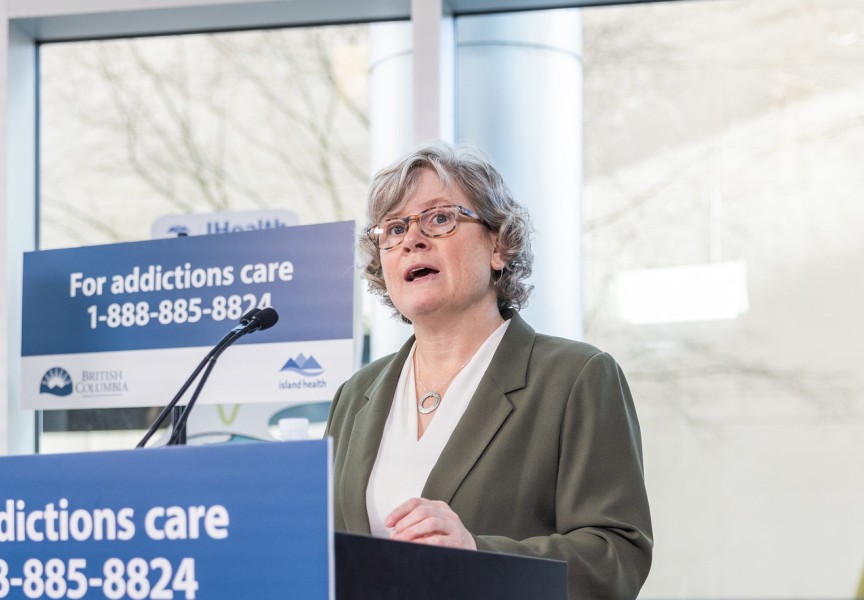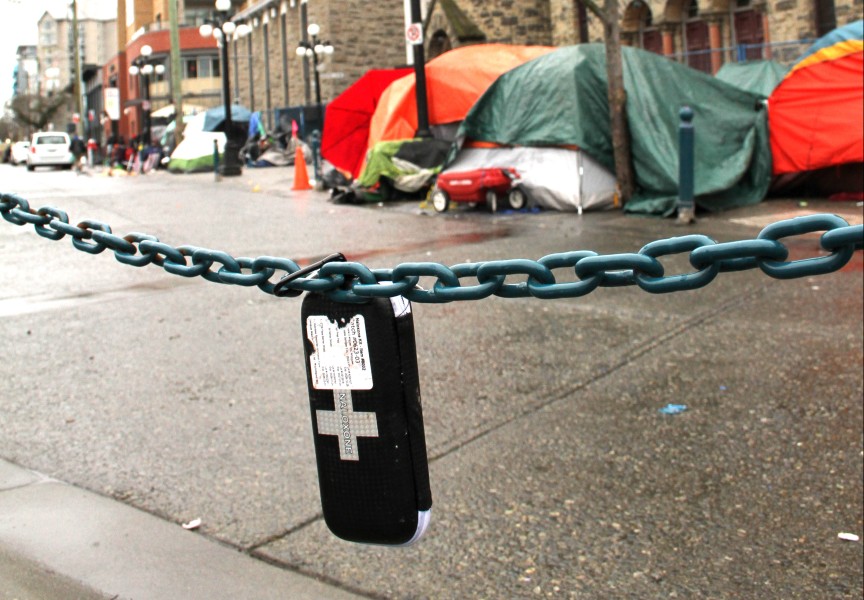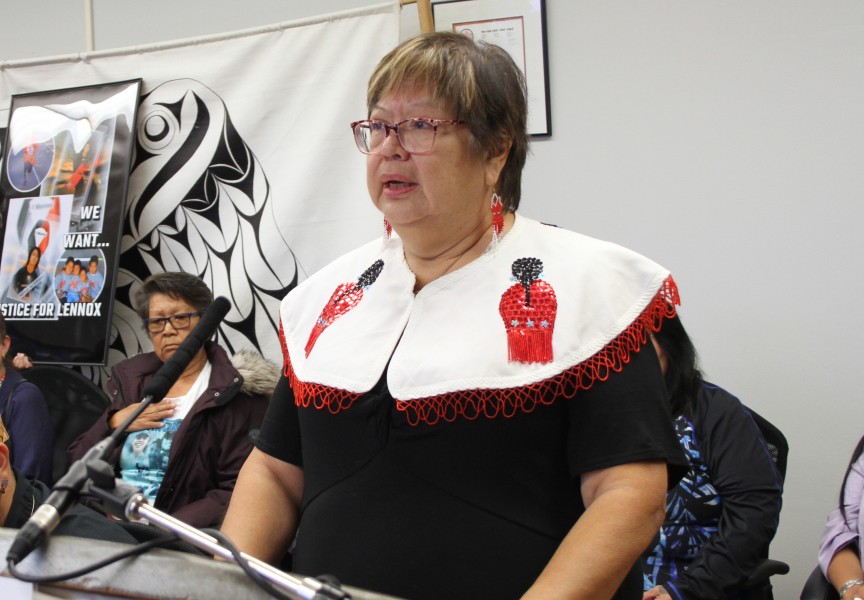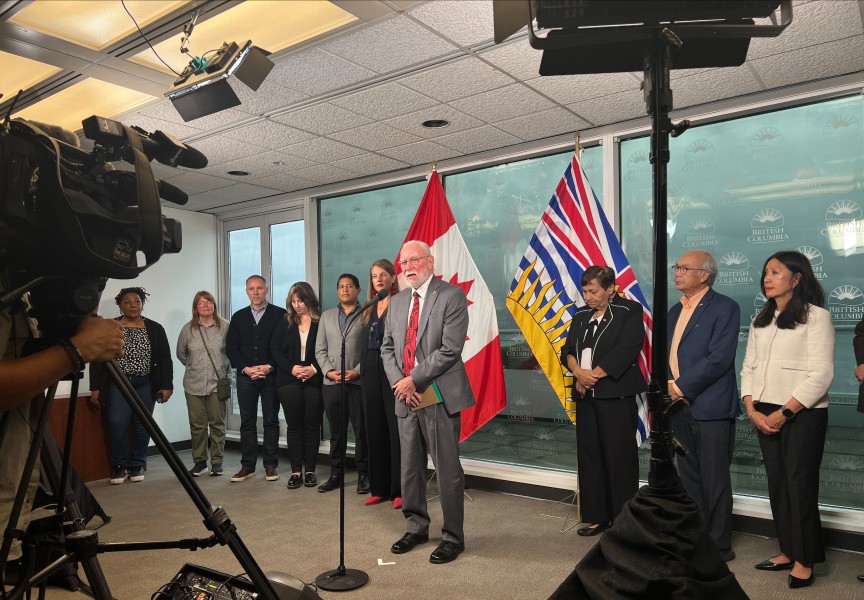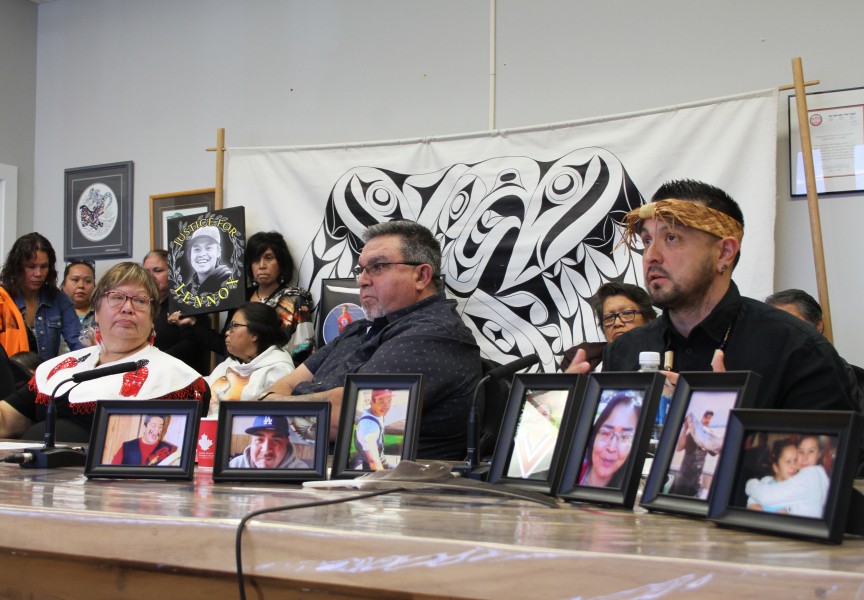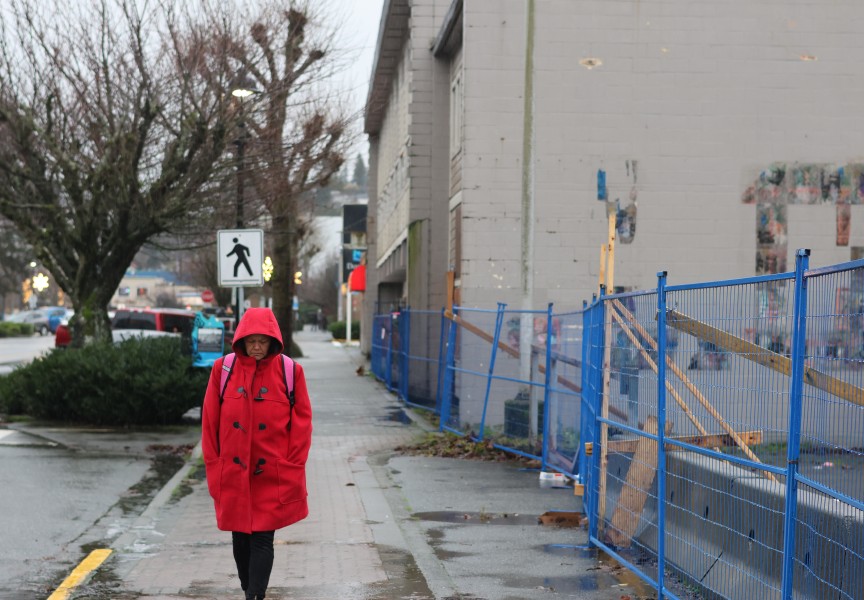Although the debate continues over how the province should handle the ongoing overdose crisis, a ray of hope is evident in the declining tally of fatal deaths in B.C.
On Feb.4 the B.C. Coroners Service reported 2,254 deaths due to illicit drug use in 2024. While it remains the leading cause of death to residents under 60 – more than homicide, suicide and car crashes combined – B.C.’s tragic toll from last year shows a 13 per cent decrease from 2023, and the lowest seen since the COVID-19 pandemic brought a surge in drug-related fatalities in 2020.
“This is consistent with reporting from other jurisdictions in Canada and internationally,” said Chief Coroner Dr. Jatinder Baidwan in a press release.
In November 152 deaths were reported by the Coroners Service, followed by 147 in December. This marks the first time in years that B.C. had an average of less than five fatalities a day due to illicit drug use.
Three quarters of last year’s fatalities were male, with 81 per cent occurring inside and the remainder outside or in vehicles. The fatality rate for those aged 19-29 dropped significantly from 40.3 per 100,000 in 2023 to 33.4 last year. The highest death rate remains those in their 40s, with 77.9 fatal overdoses per 100,000.
Over 16,000 people in B.C. have died due to illicit drugs use since the province declared a public health emergency in April 2016. The rise in fatalities over the last decade has coincided with the presence of fentanyl in the illicit market – an opioid that was found in 78 per cent of deaths in 2024.
More effective than morphine, fentanyl was originally introduced as a medical painkiller, but the drug’s spread through the health care system has faced scrutiny in recent years. British Columbia leads a class action lawsuit against pharmaceutical companies and distributors for their role to enabling fentanyl to claim a place in the street drug supply. On Jan. 22 the Supreme Court of Canada certified this lawsuit against opioid manufacturers and distributors.
“Our goal was clear: to recover the health-care costs of treating opioid-related harms and to hold manufacturers and distributors accountable for their role in allegedly using deceptive marketing practices to drive sales, contributing to addiction and overdose rates in the country,” said B.C. Attorney General Nikki Sharma in a statement. “B.C. can now proceed, on behalf of federal, provincial and territorial governments, to recover the costs of treating opioid-related diseases that were allegedly caused by the industry’s wrongful conduct.”
First Nations have been particularly hard-hit by the opioid crisis, as Indigenous people in B.C. have died at a rate six times that of the rest of the population, according to the First Nations Health Authority. The crisis led the Nuu-chah-nulth Tribal Council to declare a state of emergency in September 2024, over a year after the Ehattesaht First Nation made a similar declaration after losing an alarming number of young members.
“This is a real emergency. We are losing too many, especially young people, to this crisis,” said Cloy-e-iis (Judith Sayers), president of the Nuu-chah-nulth Tribal Council, in a statement from Sept. 19. “When we invest in mental health, education, housing and economic development, we can create a future where fewer people turn to opioids to cope with trauma and pain.”
Many Nuu-chah-nulth people live in the Alberni-Clayoquot local health area, which was third in illicit drug fatalities in 2023, behind Hope and Vancouver’s Downtown Eastside. But good news came for the region in 2024, as the death rate dropped from 105.9 per 100,000 to 65.6. Last year the Downtown Eastside continued to have the highest rate with 422 per 100,000, followed by Lillooet with 116 and greater Campbell River with 109.1.
The province has invested in “a record expansion of mental health and substance use care,” said Health Minister Josie Osborne when the latest numbers were released by the Coroners Service. The health minister noted a 1-833-804-8111 hotline supporting those with opioid addiction, as well as more free or inexpensive counselling services.
British Columbia is two years into a three-year decriminalization pilot project that frees those in possession of up to 2.5 grams of illicit substances from criminal charges. But as a provincial election approached, the province scaled back decriminalization last year, when open use in public spaces and hospitals was again made illegal.
“While we are caring and compassionate for those struggling with addiction, we do not accept street disorder that makes communities feel unsafe,” stated Premier David Eby when the policy change was announced in May 2024.
This decision has been criticized by the First Nations Health Authority, which calls decriminalization “an important harm-reduction component in dealing with the drug crisis”.
The FNHA cites a data report to Health Canada, which shows a rise in arrests for possession as of May last year. From 2019-22 B.C. saw an average of 718 possession offences each month, a number that dropped to 165 over the first year of decriminalization. But from May to July 2024 this rose to 450 charges a month, according to the report.
“Arresting people who use substances and putting them through the criminal justice system creates more harm because of the many consequences that make it more difficult to find a pathway to healing,” stated the FNHA. “A criminal record can impede the ability to seek employment, housing and may impact access to children and family.”




